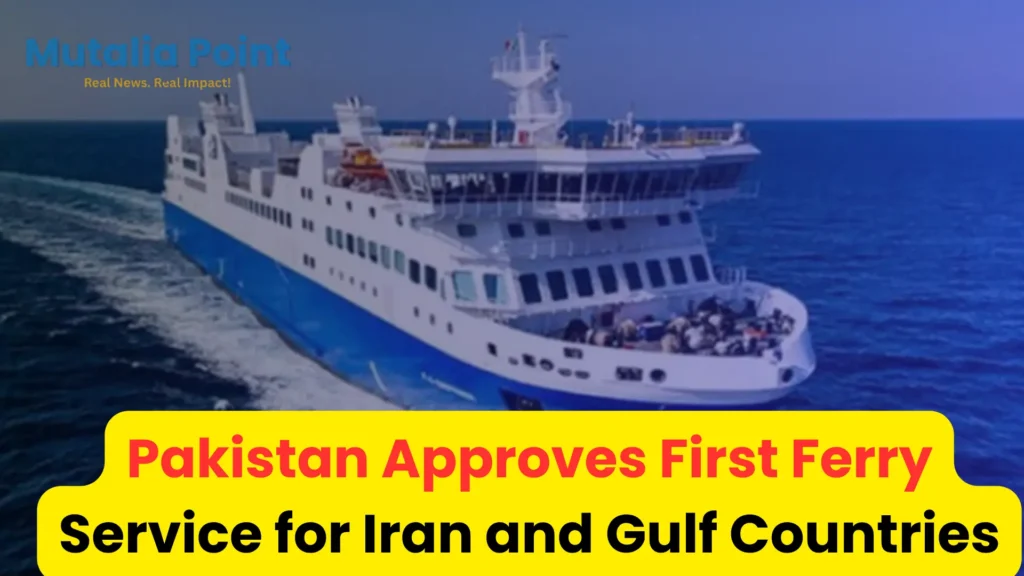Pakistan approves first ferry service for Iran and Gulf countries, marking a major step in strengthening maritime connectivity and offering cost-effective travel for religious pilgrims and overseas workers. In a historic move, the Ministry of Maritime Affairs granted a license to international operator Seekeepers to run ferry routes from Pakistan to Iran and Gulf Cooperation Council (GCC) nations. This marks the first-ever issuance of such a license in the country.
Federal Minister for Maritime Affairs, Muhammad Junaid Anwar Chaudhry, described the development as a “historic milestone” for Pakistan’s maritime sector. According to the official statement released by the Ministry, the service is expected to initially operate between Karachi and Gwadar before expanding its reach to neighboring countries like Iran, Oman, and the UAE.
A Step Forward for Maritime Travel and Religious Pilgrimage
The federal minister emphasized the project’s focus on affordable sea travel, especially for religious pilgrims, including Zaireen who travel annually to Iran and Iraq. He pointed out that between 700,000 to 1 million Pakistanis travel for religious purposes each year, and if even 20% shift to maritime routes in the first few years, that would equate to 140,000 to 200,000 annual ferry passengers. This surge could unlock tremendous economic potential.
Highlighting the importance of this new connectivity, Chaudhry noted that many Pakistanis working in GCC countries and those seeking low-cost alternatives for religious tourism stand to benefit. The ferry service is designed to be safe, comfortable, and economical, catering especially to low-income passengers.
In an effort to make the service efficient, the Minister has called for complete digitalization of the ferry licensing process, integrating it into the Pakistan Single Window system. This move aims to reduce bureaucratic red tape and speed up licensing procedures, bringing the current six-month waiting period down to just one month.
“There’s no justification for a half-year delay. We must eliminate red tape and act decisively,” Chaudhry stated.
Economic and Regional Trade Potential
Apart from serving religious pilgrims, the ferry service is expected to boost regional trade and tourism by connecting Pakistan to key economic zones in the Gulf. According to analysts, maritime linkages with Iran and GCC countries will pave the way for increased trade, tourism, and regional cooperation.
To encourage private investment in the sector, the ministry is also exploring flexible financial models for ferry operators. Options such as bank guarantees, insurance-backed models, or hybrid approaches are under consideration to ease entry barriers for entrepreneurs and private firms. Chaudhry emphasized that the government’s role should be to “support, not hinder” those interested in investing in maritime transport.
In a related move to enhance operational efficiency, the government also plans to align ferry license processing with the current ship registration protocols, which are already being handled digitally.
As Pakistan aims to modernize its maritime infrastructure and provide citizens with better travel options, this ferry initiative could be a game changer. With demand for religious travel on the rise and limited cost-effective options available, the new ferry service could offer a sustainable and scalable solution.
For further context on regional ferry operations, Gulf News has covered similar initiatives in the Middle East, highlighting how affordable sea routes have reshaped labor and tourism mobility. Likewise, the expansion of maritime links in Asia, such as those in Iran’s Chabahar Port, has shown how sea-based logistics can transform economies.















